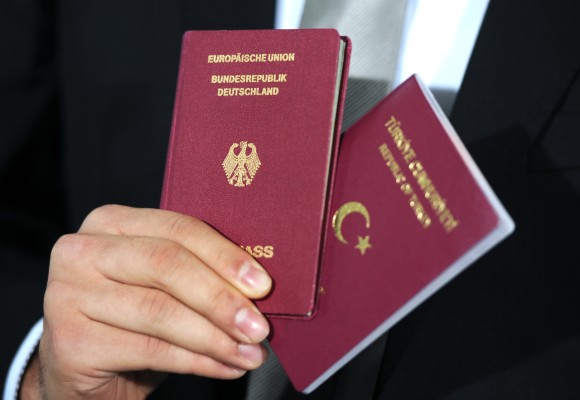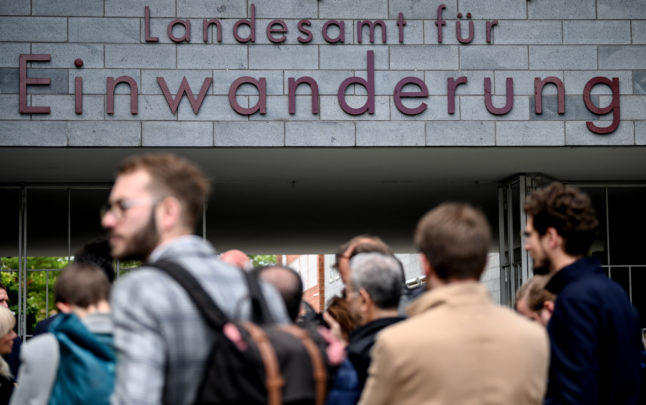Generally, the law on dual citizenship in Germany follows the principle of Vermeidung von Mehrstaatigkeit (avoidance of multiple citizenship). However, over the years what was once a strict rule against dual citizenship has gradually been slackened.
Several changes to the law over the past two decades have made it possible for many people to possess German citizenship and that of another country.
While the exact number of dual citizens living in Germany is unknown, evidence from censuses suggests it is somewhere in the region of 4.2 million people.
Changes to the law
The first major reform of German nationality law came in the year 2000 when the SPD/Green government of the time agreed to a fundamental shift in citizenship rights away from blood lines (ius sanguinis) towards a mixed principle of both ancestry and place of birth (ius soli).
This meant that children brought to immigrants in Germany now automatically qualified for citizenship, while children born to Germans abroad no longer automatically gained citizenship.
The principle of Vermeidung von Mehrstaatigkeit still stood though. At the age of 21 the children of immigrant parents had to choose between German citizenship and that of their ancestral home. But a law passed in 2014 more or less did away with this need to choose, removing it for immigrant children as long as they were born and grew up in Germany.
Meanwhile, a 2007 law had already made it possible for EU citizens to hold both a German passport and one from their home country.
EXPLAINED: What you need to know about applying for German citizenship
Lastly, a law passed last year widened the exemptions that were given to people who take on German citizenship as adults. This new law is particularly intended to help people who are politically persecuted in their home countries and those who face hefty fees for giving up their original nationality.
So, who qualifies for dual citizenship?
Birth rights
The children of a foreign parent and a German parent born on German soil have a right to both nationalities as long as the law of the foreign parent’s home country allows it. These people have always had the right to both passports. Somewhere close to 80,000 children born each year become dual nationals in this way.
Children born to non-German parents in Germany after the year 2000 have the right to dual citizenship as long as they also grew up in Germany.
Children born to at least one German national abroad have a right to dual citizenship so long as the country of their birth also recognises the principle of jus soli. The parents have to register this birth with the local diplomatic mission within the first 12 months of the child’s life.
It is not known how many people there are who possess German citizenship in this way. Since the year 2000 these people cannot pass on their German citizenship to the next generation.
Adults who become German
If you have lived in Germany legally for eight years, have never committed a crime and have a good grasp of the language then you have the right to become a German. Generally this means giving up other nationalities (unless you can give authorities an exceptional reason that you need to have double citizenship).
There are several exceptions though.
For a start, all EU citizens and citizens of Switzerland have an automatic right to dual nationality.
As the UK left the EU, Brits applying for German citizenship after the Brexit transition period ended (January 1st this year) will generally have to give up their British citizenship.
READ ALSO: How Brexit pushed thousands of Brits to get German citizenship
People who came to Germany as refugees also have the right to keep their home nationality. That also goes for citizens of Iran and Morocco, two countries which make it exceedingly hard for citizens to give up their nationality.
It is estimated that roughly half of all people who take on German citizenship as adults are able to retain their original nationality.
OPINION: Why Germany shouldn’t be creating second-class citizenship for foreign fighters






 Please whitelist us to continue reading.
Please whitelist us to continue reading.
Regarding dual citizenship, is it only citizens from EU countries and Switzerland can have dual citizenship, or does it apply to EEA/EU/Switzerland?